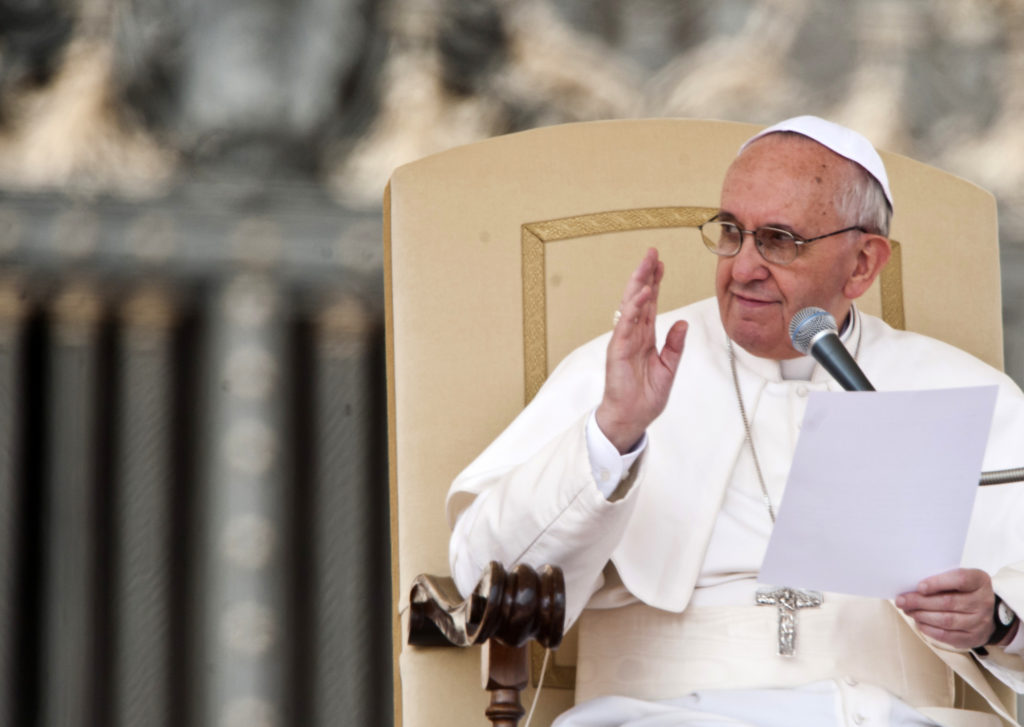Pope Francis has criticized the United States’ recent withdrawal in Afghanistan and the consequences of what he believed was a chaotic and poorly planned exit. The interview with the pontiff, recorded in Spanish, was released by a Spanish-language radio network (COPE) on Wednesday, September 1.
Regarding America’s hasty withdrawal, the Pope was quoted as saying, “All eventualities were not taken into account.” Francis went on to say,
“I do not know if there will be a review or not, but certainly there was a lot of deception perhaps on the part of the new authorities. I saw deceit or a lot of naiveté, I don’t understand. But in this situation, I would look into the way of doing it.”
However brief’ Francis’ analysis of the withdrawal was, it was his comments on the war in Afghanistan and a misattributed quote that drew the most attention from the media and Catholic faithful around the world.
The Pope misattributed a quote to German Chancellor Angela Merkel that was actually made by Russian President Vladimir Putin. Francis repeated the statement made by Putin,
“It’s necessary to stop the irresponsible policy of enforcing [the West’s] values on others and attempts to build democracy in other countries based on outside models without taking into account historic, ethnic, and religious issues and fully ignoring other people’s traditions.”
In the interview, Francis continually criticized the idea of nation-building and exporting democracy and Western values around the world.
The Pope’s position mirrors what a Gallup poll reports that a majority of Americans feel about the Afghanistan war and the recent U.S. withdrawal. A majority of the American public and the Pope feel as though the withdrawal was necessary and legitimate but that it was poorly planned and executed.
However parallel the views of most of the American public are with those of the Pope, Christians, not just Catholics, in America should criticize the Pope’s response to the war. Not for what was said but what he failed to say.
The Pope correctly called on Catholics for prayer, penance, and fasting for the victims of last Thursday’s suicide attacks in a statement on Sunday, but there was no condemnation made by the Pope of ISIS-K, which claimed responsibility. Furthermore, no such warning about the danger that faces Afghanistan Christians was communicated, and the pontiff made no mention of the brutality that the Taliban has already shown to Afghan Christians, women and children, and anyone unwilling to live under Islamic Shari’a.
Baptist Press this week reported that the Taliban sent ominous letters to Christian pastors living in Afghanistan, noting in a threatening manner that the Taliban knows where the pastors live and about their preaching activities.
Pope Francis failed to recognize the initial reason why the U.S. and allied nations invaded Afghanistan in late 2001. With the twentieth anniversary of 9/11 approaching, the pontiff was notably silent in his recent interview and statements. While Francis still has time to commemorate the worst day in modern American history, recent events in Afghanistan and the subsequent Taliban takeover, as well as ISIS-K’s recent territorial advances in Afghanistan, presented the Pope with an opportunity to condemn Islamic terrorism. It also gave him the opportunity to highlight religious freedom as a human right, the Church’s teachings on religiously based violence, and to call out evil.
The Afghanistan war seems to be a unitive issue for many Americans. “America-first” conservatives, traditional Catholics, and many in the middle of the political spectrum believe that many mistakes were made in the execution of and end to the war. Traditional Catholics, however, voice frustration at papal refusal to engage in the Biblical principles of righteous anger and condemnation of evil.
The Pope’s refusal to call out the evil that the world is now witnessing in Afghanistan recalls how some Catholic clergy declined to call out despotic regimes and non-state actors during the Cold War and more recently with China, plus many Islamist regimes. This perspective believes the best diplomatic tactic for the Church is to not publicly criticize repressive governments and instead seek quiet accommodation.
In a time when moral and political relativism begets moral absolutism, the Church, with leadership from the Holy Father himself, should be among the first and loudest critics of those who seek to harm the vulnerable, ignore human rights conventions, and force radical Islam upon the world. Catholic faithful can only hope that the Pope heeds the words of the Apostle Paul to the Romans, “Do not be overcome by evil, but overcome evil with good” (Rom 12:21, RSVCE).





Comment by Search4Truth on September 11, 2021 at 7:31 pm
Isn’t this the same pope who has just issued a call for universal disarmament with a statement that no one in the military, police, or arms industry can claim to be a Christian?